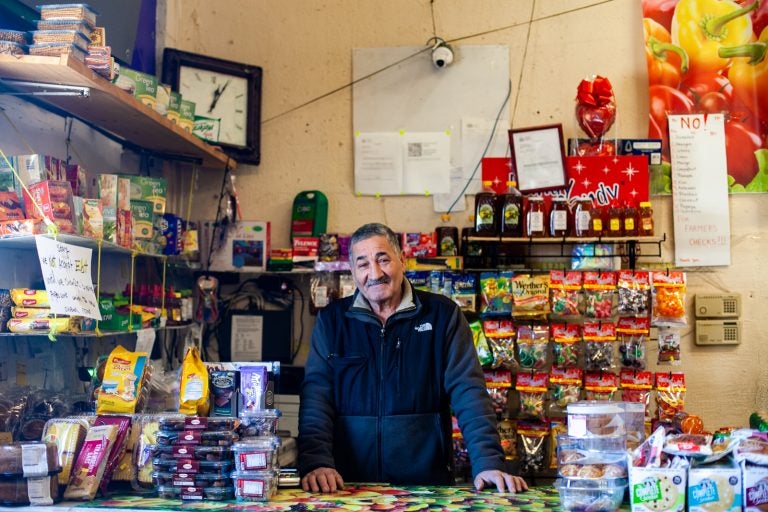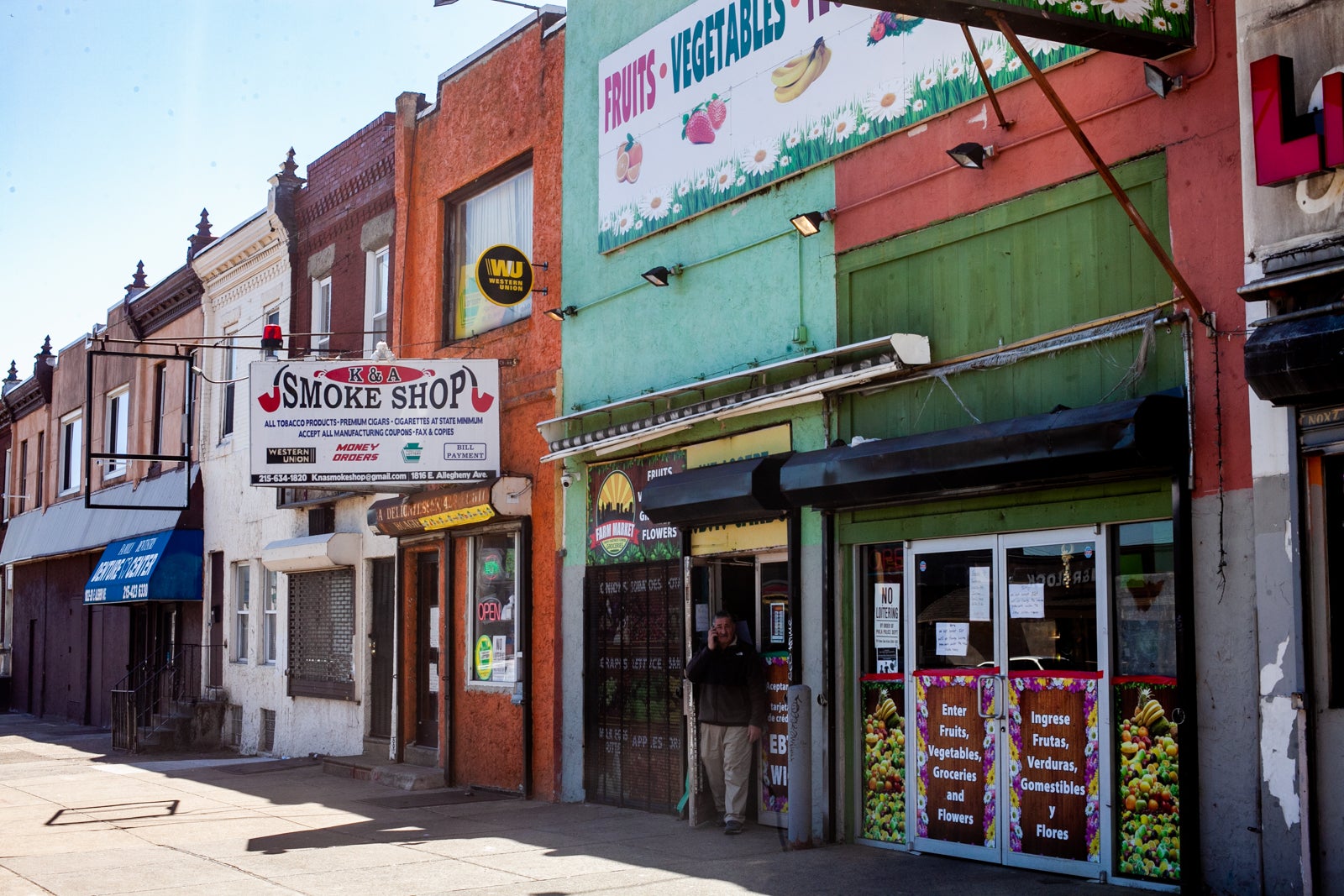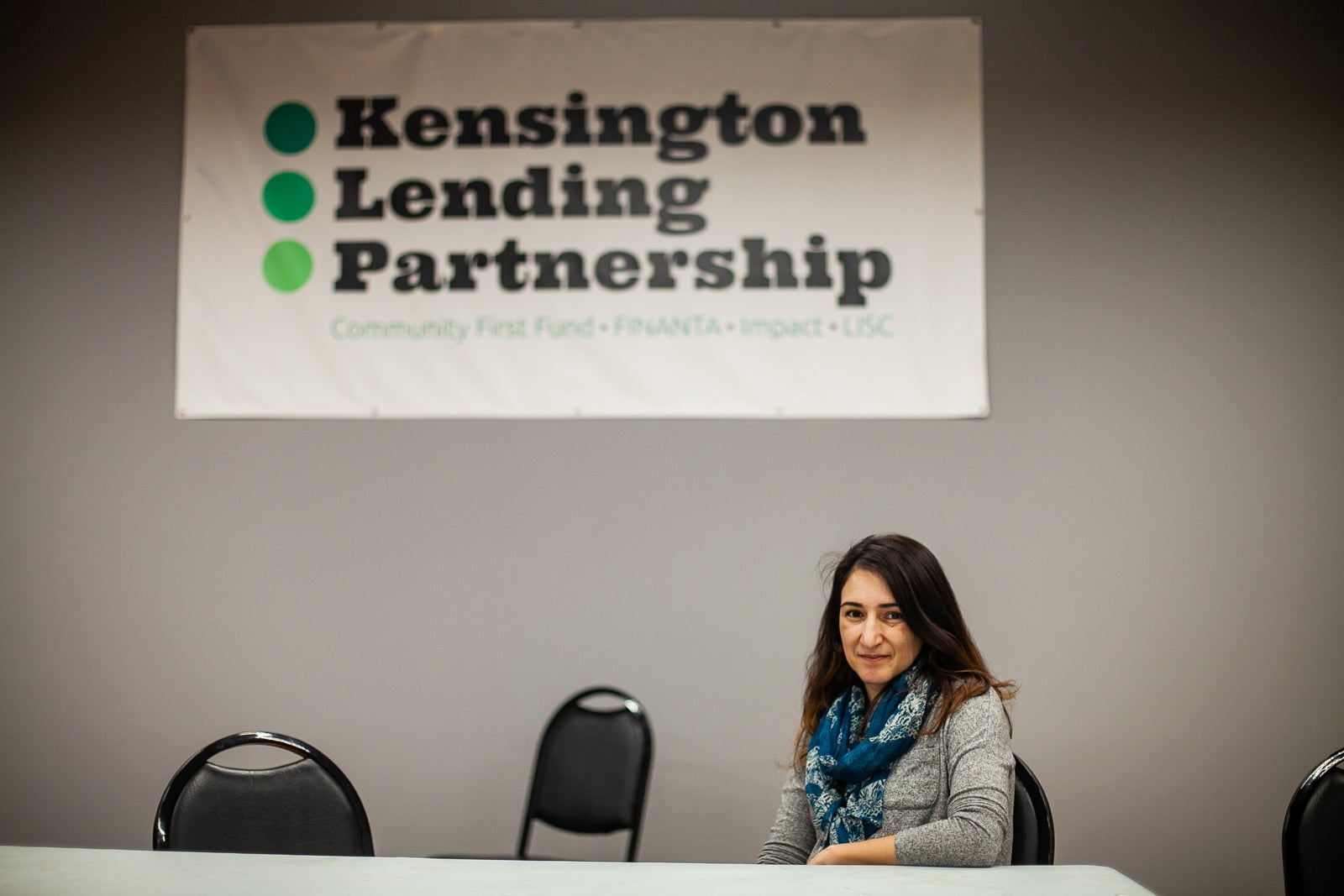Grant aims to create economic opportunity in embattled Kensington
Through $5 million from the JPMorgan Chase Foundation, a partnership will provide loans for residents to open small businesses, buy homes, and become real estate developers.

Abdelmgeed Muhammad Elgamal inside of his produce market on Allegheny Avenue in Kensington Tuesday. (Brad Larrison for WHYY)
A sign on the door of Abdelmgeed Elgamal’s fruit and vegetable market on Allegheny Avenue, written in black marker, informs customers the store can’t currently accept EBT payments — otherwise known as food stamps.
That’s been a problem for Elgamal, 72, an Egyptian immigrant who bought the grocery in December. Most of the store’s old clientele, he explained, used EBT cards to pay, and he’s missing out on more than $1,000 in revenue per day while he waits to be approved as an EBT vendor.
“This area, everybody has this card,” Elgamal said.
His problem is just one of the challenges faced by small-business owners in a neighborhood struggling with widespread poverty and a devastating opioid crisis. Getting financing is another, but Elgamal was able to obtain an $80,000 loan from the Impact Loan Fund, the nonprofit lending arm of local community-development corporation Impact Services.

The loan helped Elgamal buy the store and pay for expenses in the early days of his business, and he’s confident he can weather these slower days without EBT.
Soon, more residents and would-be entrepreneurs in Kensington will have access to loans like this, thanks to a $5 million grant from the JPMorgan Chase Foundation for economic development in the neighborhood. The grant was awarded to a newly launched group of nonprofit lenders, the Kensington Lending Partnership, that includes the Impact Loan Fund and three other community development financial institutions. The partnership will provide loans to help residents open small businesses, buy homes, and even become small-time real estate developers.
The initiative aims to address the lack of economic opportunity in Kensington, often cited as a driving force behind its enduring market for illegal drugs and the heavy toll the opioid crisis has taken on the neighborhood.
“This money will go first and foremost to people living in this neighborhood, working in this neighborhood,” said Patricia Codina, director of community development at Impact Services.

With a large Latino community, many of those residents are from low-income and underserved minority groups, she said.
“We’ve seen decades of disinvestment in this neighborhood, of lack of access to lending on behalf of homeowners, small businesses … so this $5 million could really make a dent, make a difference to our community,” Codina said.
Impact Services will focus on expanding its Jumpstart Kensington program, which provides training and financing for neighborhood residents to become small-scale real estate developers. Other lenders in the partnership, which includes FINANTA, Community First Fund, and Philadelphia LISC, will provide loans to businesses and homeowners, as well as credit counseling and entrepreneurial training.
Participants in the Jumpstart program, who must live in Kensington to be eligible, learn how to acquire, rehab, and flip distressed buildings. It’s a way of turning the abundance of abandoned and blighted properties into job opportunities in a place where some see few alternatives to either leaving the neighborhood or participating in the drug trade, Codina noted.
“I hope that this will help people see that there are ways to thrive in Kensington,” she said.
WHYY is your source for fact-based, in-depth journalism and information. As a nonprofit organization, we rely on financial support from readers like you. Please give today.





